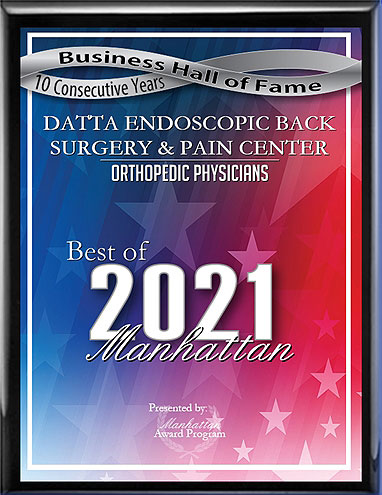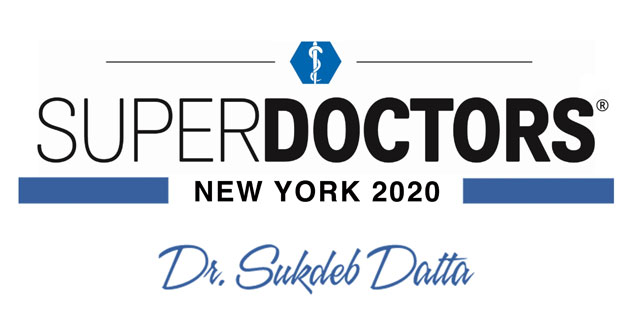Bulging discs are one of the most common causes of chronic back pain. Although they can cause debilitating symptoms in some patients, bulging discs are highly treatable. Knowing the signs of a bulging disc can help you get treatment as soon as possible, minimizing the amount of time you have to live with symptoms.
Description
The intervertebral discs are composed of a gel-like inner portion called the nucleus pulposus, and a firmer outer portion which surrounds the nucleus, called the annulus fibrosus; the structure has been compared to that of a jelly doughnut. The discs absorb the shock of everyday movement and cushion the vertebrae from one another. With age, the discs start to lose fluid. This makes them more prone to injury and damage.
A bulging disc occurs when the annulus fibrosus becomes flattened or misshapen; it bulges out of the space it normally takes up, like a hamburger too big for its bun. Some people with bulging discs experience no symptoms at all. However, when the disc begins to press against the spinal cord or nerve roots, symptoms may occur.
Symptoms
The symptoms of a bulging disc will vary from person to person depending on the area of the spine, the extent of the bulge, and which nerves are being pinched. If the affected disc is located in the cervical spine, symptoms may manifest in the arms and neck; lumbar bulging discs may affect the lower back, pelvis, and legs; thoracic bulges can affect the upper back and torso. Symptoms include:
In addition to the immediate symptoms of the bulging disc, chronic pain can cause a variety of other symptoms, both psychological and physical. These include:
Diagnosis & Treatment
The symptoms of a bulging disc are similar to the symptoms of other conditions which cause pinched nerves or pressure on the spinal cord. Without further diagnostic testing, there is no way to tell from symptoms alone whether or not a person has a bulging disc.
Doctors diagnose bulging discs using a combination of analysis of symptoms and imaging techniques such as MRI. Once the problem has been diagnosed, treatment can be started right away.
The first step in the treatment of bulging discs is to attempt non-surgical treatments. The majority of patients find that their symptoms are alleviated by these methods. Non-surgical treatments attempt to ease the symptoms of bulging discs by either reducing the load borne by the discs, or by reducing the inflammation that can occur as a result of injury to the discs. Physical therapy, rest, and weight loss fall into the first category; non-steroidal anti-inflammatory drugs (NSAIDs) and steroid injections fall into the second.
If these methods are ineffective, then it is time to consider surgery. Bulging discs can be treated with either traditional open back surgery or with laser spine surgery. While both methods are effective at treating bulging discs, laser surgery may be a better option for patients worried about downtime or certain complications; since the procedure is minimally invasive, the recovery time is shorter and there is a lower risk of complications associated with a large surgical wound.
While only a doctor can diagnose a bulging disc, if you are experiencing chronic pain or related symptoms, you should see a physician for further diagnosis. Effective, timely treatment can help you resume your normal life as early as possible.
Description
The intervertebral discs are composed of a gel-like inner portion called the nucleus pulposus, and a firmer outer portion which surrounds the nucleus, called the annulus fibrosus; the structure has been compared to that of a jelly doughnut. The discs absorb the shock of everyday movement and cushion the vertebrae from one another. With age, the discs start to lose fluid. This makes them more prone to injury and damage.
A bulging disc occurs when the annulus fibrosus becomes flattened or misshapen; it bulges out of the space it normally takes up, like a hamburger too big for its bun. Some people with bulging discs experience no symptoms at all. However, when the disc begins to press against the spinal cord or nerve roots, symptoms may occur.
Symptoms
The symptoms of a bulging disc will vary from person to person depending on the area of the spine, the extent of the bulge, and which nerves are being pinched. If the affected disc is located in the cervical spine, symptoms may manifest in the arms and neck; lumbar bulging discs may affect the lower back, pelvis, and legs; thoracic bulges can affect the upper back and torso. Symptoms include:
- Pain in the back
- Pain in the limbs
- Muscle weakness
- Numbness or tingling in the limbs
In addition to the immediate symptoms of the bulging disc, chronic pain can cause a variety of other symptoms, both psychological and physical. These include:
- Insomnia
- Depression
- Anxiety
- Decreased immune response
- Decreased work productivity
Diagnosis & Treatment
The symptoms of a bulging disc are similar to the symptoms of other conditions which cause pinched nerves or pressure on the spinal cord. Without further diagnostic testing, there is no way to tell from symptoms alone whether or not a person has a bulging disc.
Doctors diagnose bulging discs using a combination of analysis of symptoms and imaging techniques such as MRI. Once the problem has been diagnosed, treatment can be started right away.
The first step in the treatment of bulging discs is to attempt non-surgical treatments. The majority of patients find that their symptoms are alleviated by these methods. Non-surgical treatments attempt to ease the symptoms of bulging discs by either reducing the load borne by the discs, or by reducing the inflammation that can occur as a result of injury to the discs. Physical therapy, rest, and weight loss fall into the first category; non-steroidal anti-inflammatory drugs (NSAIDs) and steroid injections fall into the second.
If these methods are ineffective, then it is time to consider surgery. Bulging discs can be treated with either traditional open back surgery or with laser spine surgery. While both methods are effective at treating bulging discs, laser surgery may be a better option for patients worried about downtime or certain complications; since the procedure is minimally invasive, the recovery time is shorter and there is a lower risk of complications associated with a large surgical wound.
While only a doctor can diagnose a bulging disc, if you are experiencing chronic pain or related symptoms, you should see a physician for further diagnosis. Effective, timely treatment can help you resume your normal life as early as possible.






 EDISCSCULPT
EDISCSCULPT



